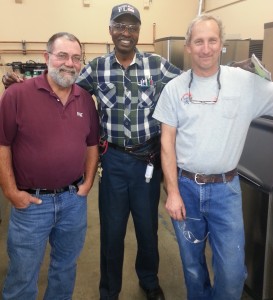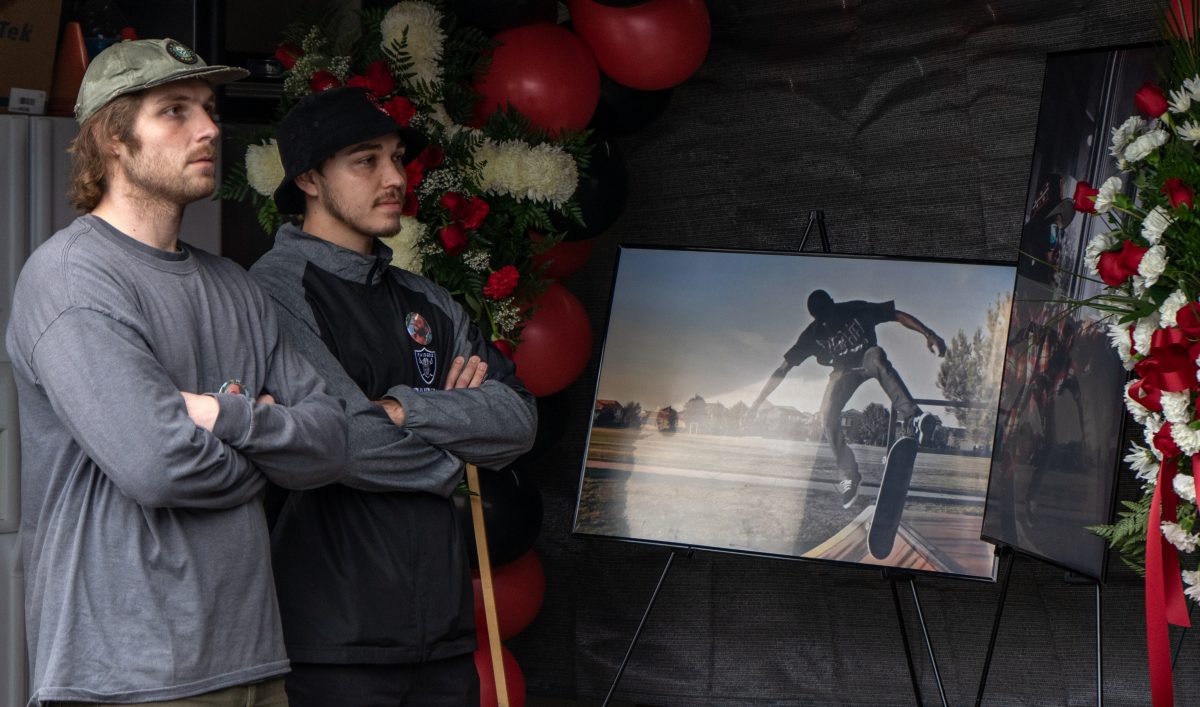
As the cold weather arrives and outside temperatures drop, most students don’t even think twice about enjoying the warmth of the indoor buildings and classrooms on campus.
Except, probably, for the students in the buildings occupied by the Mechanical-Electrical Training (MET) department who get hands-on training from instructors on the maintenance and operation of climate control systems.
The MET building features a new state-of-the-art boiler facility run by the students that generates heat for their classrooms and training areas.
“It is important that students get real-world training that prepares them for the current job market,” says Jon Zeh, MET instructor. During a recent tour of the facility, Zeh pointed out an old chiller from the building that was just torn down on campus.
A chiller is a machine that removes heat from the water that circulates through pipes into the building; this in turn captures more heat to
return to the chiller to be cooled by air and water.
“That chiller is being repurposed for training,” Zeh says. “There are all types of dampers used to control air flow and controls that require maintenance. To work on them, you need to get inside the unit.”
“The new 40-ton chiller and state-of-the-art boiler are two major training features that our training set our program apart from others,” Zeh says.
The MET department is unique, according to Zeh.
“We are the only community college in California that has a steam plant we use for training our students,” he says.
A steam plant boils water to produce steam that is used to heat their facility.
The recent completion of a hydronic water-balancing lab in 2012 is another example of the department’s commitment to training, according to Zeh.
There are many job prospects for graduates, Zeh adds.
“There are a wide range of job opportunities including [jobs in] Heating, Ventilation and Cooling [HVAC],” Zeh says. “[There are also jobs for] residential and commercial HVAC technicians, stationary engineers, Direct Digital Control (DDC) specialist, air and water balancing [and] project management and sales.”
The most recent change to the curriculum is the addition of the certificate program in Building and Energy Auditing. This year the California Legislature passed Assembly bill 1103 (AB1103), which, when it goes into effect in January, will require mandatory energy benchmarking and energy disclosure for non-residential buildings.
Roosevelt Jones, MET instructional assistant and system technician, has been assisting students in the program since 1988. Before working in the M.E.T. department Jones had years of military training in mechanical systems.
“After a 26-year career in the military with experience in the boilers and mechanical systems, I would liken this program to hands-on mechanical engineering training requiring the student to apply math, English, electrical and technical skills in hands on environment,” Jones says.
Jones, who says he is retiring next year, enjoys assisting in the program.
“The best part of my job is working with the students and helping them with the systems and applying knowledge of heat flow, density, volume, temperature and pressure calculations to the heating and cooling systems we are teaching our students,” he says.
One of the students Jones assisted is Matt Milan, a recent graduate of the MET program. Milan calls the MET program a “real bargain” compared to other private training programs.
“The state-of-the-art modern equipment is important in the training a stationary engineer [and] what I consider the top tier of technical training in the HVAC industry. Their job is to maintain and operate mechanical equipment such as boilers, refrigeration, pumps, motors, lighting cooling and heating and even solar systems in a building,” he says.
After graduating, Milan volunteered time to the program and applied for a position as an instructor’s aid and now works as an assistant in the department.
“Coming back to the program has allowed me to give back what others have taught me,” Milan says. “Helping students to understand the fundamentals of the program reinforces my own knowledge. I am always learning in this position.”
There are many career opportunities for those who complete the program, he adds.
“Think about it: Climate control is used all around us-our homes, commercial buildings, cell phone towers, server rooms all need air conditioning. These are just a few of the many career opportunities available,” says Milan.
Zeh agrees.
“The MET department is set up to offer career training for people that are looking to go to work,” he says.“As a vocational education department we make sure people are trained to enter the work force. People get entry-level skills in courses that are relevant to today’s job market.”




























